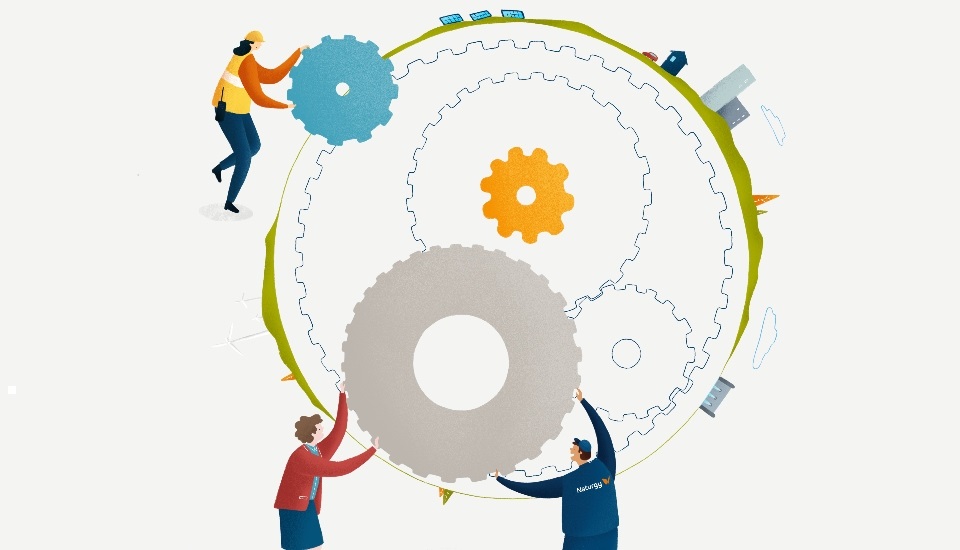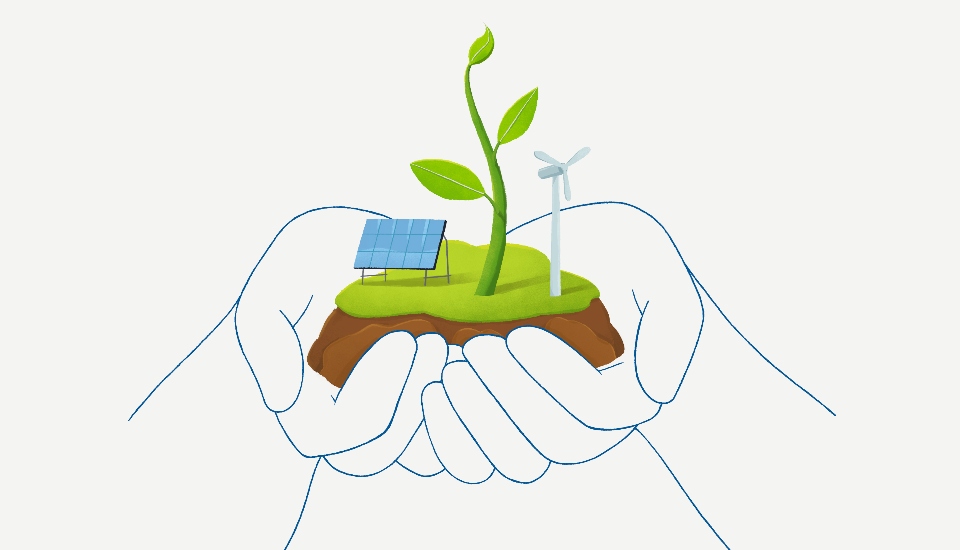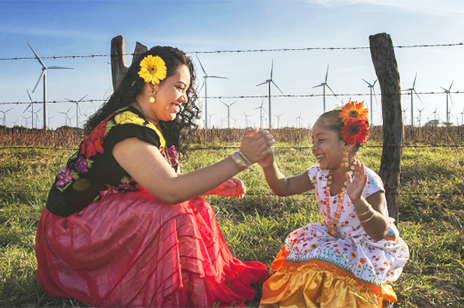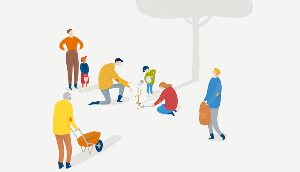Inicio / Sustainability / With society
With society
Our commitment to society goes beyond our business operations

We are committed to the economic and social development of the regions where we operate
As a socially committed company and supplier of a basic good, namely, energy, our commitment to society involves offering a continuous quality supply, as well as understanding and helping to address and solve challenges associated with access to energy, such as those that affect vulnerable groups, and to minimise the effects that the energy transition has on some territories with fair transition initiatives. The role of the Naturgy Foundation is key in addressing these challenges.
Fluid, ongoing dialogue with society also helps us to understand the expectations and interests of local communities, fostering their involvement and participation, and also ensuring local acceptance and collaboration with all stakeholders.
With our business activity and sponsorship actions we maintain a commitment of permanent collaboration with society, allocating resources to cultural, social, sustainability and environmental programmes.

Priority lines

Principles
- Energy vulnerability
- Fair energy transitionn
- Community relations
- Sponsorship, patronage and social action
- Naturgy Foundation
- Dialogue with the community
- Social impact assessment
- Creation of shared value
- Social investment
- Knowledge
The Naturgy Foundation

The Naturgy Foundation is a non-profit institution founded by Naturgy in 1992 that seeks to train and raise society’s awareness of sustainability, energy and the environment.
It carries out social programmes to reduce the effects of energy vulnerability and promotes technical, educational and informative activities to understand the environmental challenges facing the planet and encourage society to take action.
Energy vulnerability
Aware of the current problems facing society, we have programmes to combat a social reality that is affecting a larger portion of society every day: energy poverty. To that end we are introducing measures that have a particular impact on vulnerable groups as part of our Vulnerability Plan.
We focus our social action on helping to alleviate energy vulnerability through education and direct action with volunteers and home energy refurbishment, in collaboration with the tertiary sector.

Community relation
Our Human Rights Policy is underpinned by respect for communities and improvement of their living conditions. Compliance with it requires evaluation of the social impact of our activities and the definition of initiatives and programmes that manage the social impacts identified in the nearby communities.
To this end, we have a Social Relations Model (MRS), which is aimed at integrating social management as another discipline throughout the life cycle of generation projects, and is supported by the application of methodological tools with a cross-cutting focus on communication, active listening and rootedness.

Principles in our community relations
The Social Relations Model is based on the following principles guiding relations with communities:
We are the latest newcomer in the territory: we recognise, respect and protect local values and idiosyncrasies.
We communicate as equals: we promote early and transparent communication and we open accessible channels for active listening.
We generate shared value: we promote actions that improve quality of life in the environment.
We provide opportunities: we are a development engine in the territory and a lever to support local employment and training in the sector.
Corporate volunteering
We structure the corporate volunteering programme into three areas: energy, social and environmental. During 2022, 646 employees from Spain, Mexico, Panama, Brazil, Argentina and the Dominican Republic, together with their companions, committed over 13,783 hours to corporate volunteering.
Overall, there were 66 one-off, temporary or continuous initiatives, 28 social volunteering actions, 14 environmental volunteering actions and 241 energy volunteering actions involving 2,156 volunteers. In 2022 the number of beneficiaries reached 15,143 people.
Community and Sponsorship

We maintain a working commitment to society that goes much further than our business activity, with resources dedicated to social, cultural, sustainability and environmental programmes.


